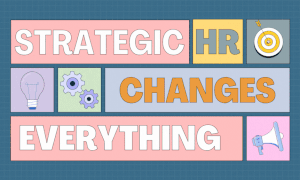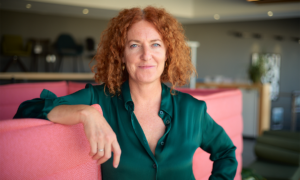
How fitness helped me build resilience and change my life
by Margaret Formosa
We have all heard that physical exercise is good for you and that committing to a consistent fitness training programme has several benefits for your physical and mental health. So how can this change your life?
I’d like to share my story on how fitness helped me change mine…
It all started with the goal of shedding some weight and looking aesthetically better. Within a few months of training, I saw noticeable changes in my physique and enjoyed the challenge mentally and physically. But besides the obvious physical benefits of exercising, I noticed the power it had on my mental outlook, and the most significant factor was the internal feeling I had about my self-confidence.
With each challenge at the gym or each kilometre I added to my runs, I started to improve in all areas of my life, such as my relationships and my approach to work. These changes are what I believe have helped me grow, self-develop, set goals, and get to where I am today.
Challenge On and Build Resilience
If you look up the word resilience, you will find that it is the ability to recover quickly from difficulties which come your way. So how can you build resilience and transfer this skill to your workplace?
Whatever fitness regime you decide to take on, setting mini challenges is the one thing which will help you build resilience. Running the extra mile and adding another rep of burpees all make you physically and mentally stronger. In this type of environment, you can practice dealing with obstacles and finding solutions to problems. This will aid you in building resilience in any situation. So why is resilience important? Resilience is crucial for handling difficult challenges in the workplace and life.
Just as you would train skills such as techniques to run faster, tackle box jumps without tripping or increase your pull-up reps, you can also train to become more resilient at work. In doing so, you will become fitter, stronger, and a better version of yourself. You will develop important character values such as patience, discipline, self-management and confidence, which are the key to building resilience.
Having this skill in the work environment has endless benefits – it makes you less vulnerable to getting knocked down by obstacles, more motivated to learn and improve performance, more capable of dealing with change and better at finding solutions. It will help you become more self-confident in taking on challenges, working under pressure, and more.
Think ahead
When planning our workouts, the challenge always lies in slotting them into our busy lives.
“Finding the time’’ vs ‘’making the time’’ is always a problem. This boils down to the art of prioritising. Fitting in your daily workout is telling yourself that a meeting with yourself is essential and that there is no time for anything else during that hour slot, just as you would when you schedule a meeting with your boss or team – it’s that important. When planning workouts in your weekly planner, you are more committed. It becomes part of your routine, the same way simple daily tasks such as brushing your teeth and preparing meals are. Thinking ahead and scheduling them in your daily routine will help you become more committed and consistent. It will also help you stay on track, use your time efficiently and ultimately achieve your goals.
To succeed in putting your fitness programme into action, you need to have a vision. Ask yourself what you want to accomplish — Do you want to get stronger? Do you want to build resilience? Do you want to be more self-disciplined? Do you want to look and feel good? In the end, you will feel more positive, become stronger mentally and physically, and be more equipped to cope with challenges and be on the road to success.
So, are you ready to drive your vision forward?




